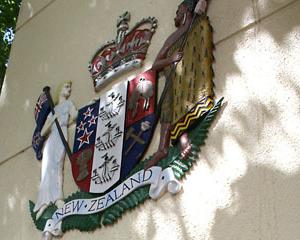Sentencing the Dunedin businessman in the High Court at Dunedin, Justice Fogarty took a moment to collect himself as he spoke of Sew Hoy's "enormous" fall from grace after admitting paying kickbacks to Michael Swann in return for favourable treatment in relation to IT services to be provided to the Otago District Health Board.
Sew Hoy (48) was sentenced to 10 months' home detention and ordered to repay the ODHB $325,000 by December 2, as per an agreement already in place with the board.
In September, Sew Hoy admitted one charge under the Secret Commissions Act 1910 of corruptly making a $755,153.89 payment to Swann in his capacity as ODHB chief information officer as an inducement between January 6, 2000 and September 11, 2006.
Swann has pleaded not guilty to accepting inducements from Sew Hoy and will stand trial next year.
Justice Fogarty's voice cracked as he told Sew Hoy: "I have no doubt that with the customs and traditions of your ancient civilisation that you will see an obligation to make good the damage you have done to the Chinese community."
He then paused, excused his emotion and explained why the case affected him so personally.
"The Chinese community has its origins in the Otago goldfields, the same as my own family. I've always seen the Chinese as setting exemplary standards. It's extremely rare to see a Chinese person of these origins before this court and it is most upsetting."
He had earlier referred to a "remarkable" set of references supplied in support of Sew Hoy.
They included a number from business leaders, doctors, lawyers, a law enforcement officer and one from Dunedin Mayor Peter Chin, who disclosed he had close family ties with Sew Hoy.
The $325,000 reparation agreement reached with the ODHB reflected several factors, including that the original sum included GST, that the board still owed Sew Hoy for work completed and that another health board had been found to pay up to $85 an hour for similar IT services, potentially lessening the amount allegedly overcharged, the judge said.
The Crown's statement of facts said for every hour Sew Hoy charged to the board for computer help desk services, he paid $25 to Swann.
The hourly rate Sew Hoy's company charged the board was $95, compared with an average of $56 other health boards were charged for the same services.
Crown prosecutor Robin Bates said Sew Hoy's offending was aggravated by the amount of money involved, the period over which the payments were made, the financial gain through his agreement with Swann, that it was public money, and that the money was paid to a government employee.
Sew Hoy's lawyer, David Jones, told the court Swann had been his client's childhood friend and business mentor.
He had helped Sew Hoy get in to the IT business and Sew Hoy felt beholden to him for referring clients.
Sew Hoy had a previously unblemished record, had extensive family support and was of exemplary character.
Justice Fogarty said Sew Hoy deserved acknowledgement for the reparation agreement, his contribution to the community through his sporting interests and his work caring for people with mental illness, and that he was working with the Serious Fraud Office on the Swann case and had agreed to be a witness at trial.
The judge said he was satisfied Sew Hoy was held accountable by the reparation agreement, was aware of the harm he had done and would never do it again.
"But it is important to deter other people from committing the same crime."
He sentenced Sew Hoy to 10 months' home detention, with the condition he only leave the house for exceptional business purposes that required him personally to attend to them and for which he was required to obtain the permission of his probation officer.
He also had to rescind his membership of the Dunedin Shanghai Sister City Association.
In a victim impact statement, ODHB chief executive Brian Rousseau said the emotional, reputational and financial harm caused by Sew Hoy's offending had significant effects on the board and its employees.
The offending had created distrust and tension within the organisation and low staff morale, particularly in the IT department.
The board chairman had had to step down and the board's previously excellent commercial reputation was tarnished.
Aside from the money Sew Hoy was to pay back, the board had incurred $27,217 in legal fees in relation to his offending.
After the sentencing, Mr Rousseau said the law had taken its course.











